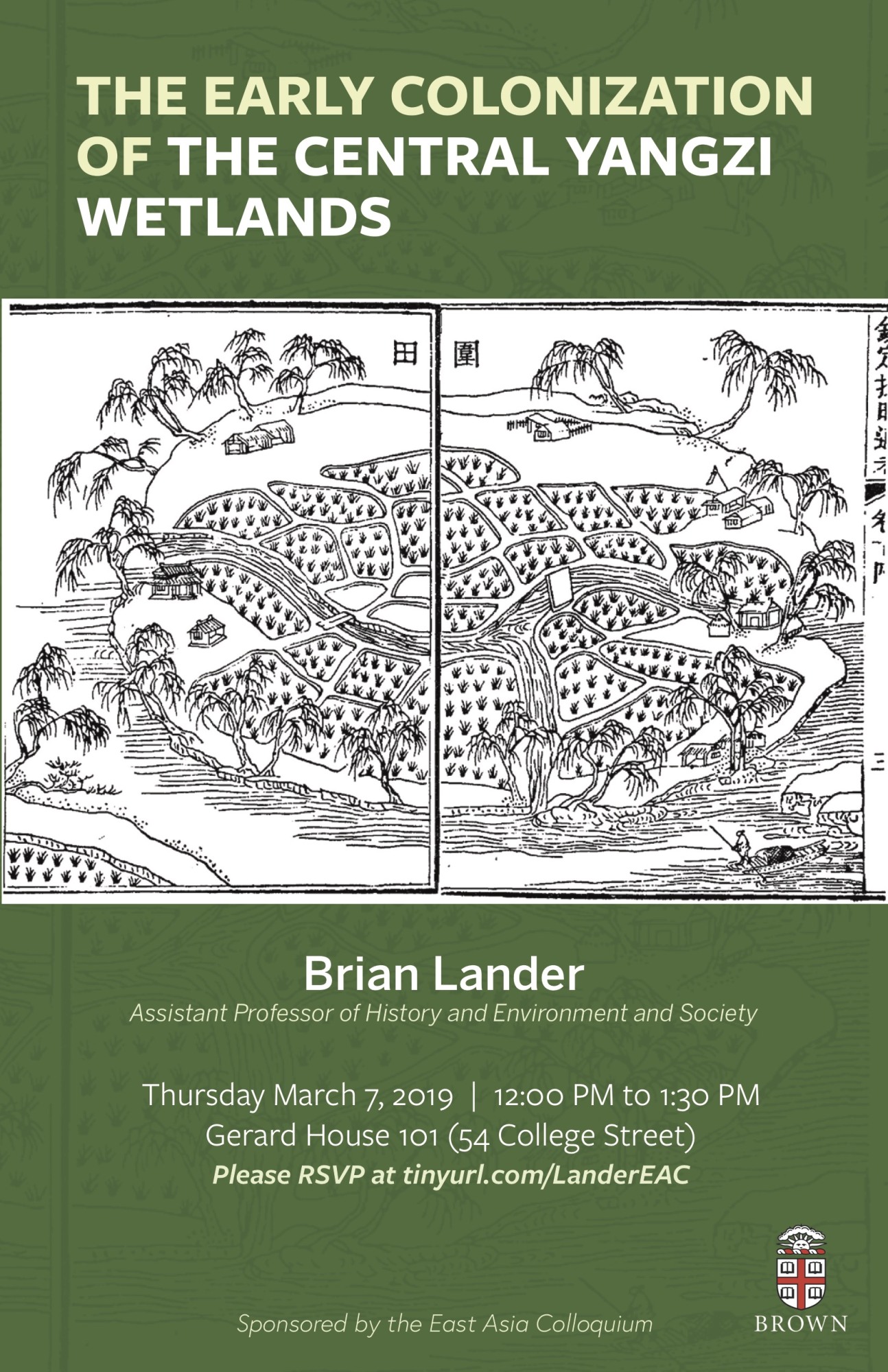 The Early Colonization of the Central Yangzi Wetlands
The Early Colonization of the Central Yangzi Wetlands
Brian Lander, Assistant Professor of History and Environment and Society, Brown University
The wetlands of the Central Yangzi basin were once among the largest in China, but have since been converted into rice paddies and fish farms. They were seasonal wetlands, dry in winter but flooded each summer by the Yangtze and Han Rivers, so colonizing them required building and maintaining dikes to keep out the flood waters. Scholarship on the region has tended to focus on recent centuries, for which there is abundant evidence, but this paper will gather scattered references to agricultural colonization from historical documents to show that people were actively managing water control infrastructure in the region from the 1st millennium BCE to the fall of the Song Dynasty in 1279. The best documented aspect of this were the construction and gradual strengthening of the large dikes along the Yangtze River, but scattered textual references also reveal a host of smaller water control works that were constructed over the centuries, though we often know little more than their names and locations. When the Song court fled southwards in 1127 and founded the Southern Song in the lower Yangzi, the Jianghan Plain suddenly became a strategic military frontier, and the Song built both defensive canals and agricultural colonies.
Brian Lander is an environmental historian of early China who received his PhD in 2015 from Columbia University and is now assistant professor in the history department and a fellow at the Institute at Brown for Environment and Society. He studies the natural ecosystems of the core regions of Chinese civilization and how they were transformed over the millennia into agricultural landscapes.
If you would like to attend the event, please RSVP by filling out this form by Monday, March 4th, at noon. The form is also available at www.tinyurl.com/LanderEAC. We appreciate your cooperation in helping us get an accurate headcount and dietary information for the talk.